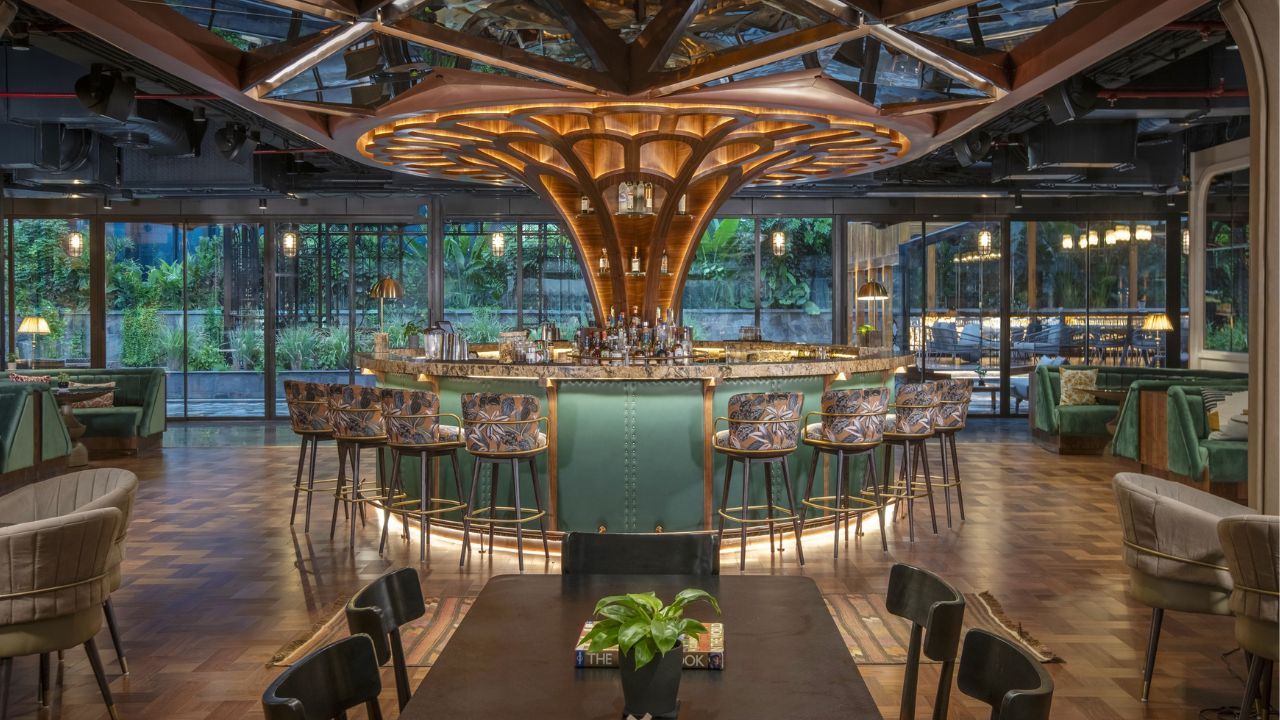“About 30 years ago, The Groucho Club in the UK tore away from the traditional gentlemen’s clubs to a more relaxed alternative, and since then the business of contemporary club has grown globally,” according to The Quorum Club co-founder Vivek Narain. He said that in 1985, London’s The Groucho set a new trend of a private space where like-minded people could work together, dine together, and mingle.
In India, while the club culture began during the British era, the wave of contemporary private clubs has emerged in the past two decades only. According to Sandeep Jethwani, co-founder of wealth management startup, Dezerv, there are more than 25 operational clubs in India such as The Quorum, Soho House, The Chambers, 17 Degree North, BLVD, etc, that have become a hub of unwinding, creativity, and networking.
To get membership in colonial-era institutions such as the Bombay Gymkhana or the Delhi Golf Club is a tough grind but these new-age private clubs, located in plush urban centres give accessibility smoothly to the elite to socialise, to strike a business deal, cultivate friendships, host events, and more.
‘Private clubs vs Luxury hotels’
Providing a top-notch level of hospitality service to the guests is the common denominator between Private Clubs and Luxury Hotels. However, Narain from The Quorum Club said that Private Membership Clubs are more residential, wherein people can integrate their lifestyle into their work, play, and entertainment along with like-minded people. “We tend to be more personal in our service. We have our own defined clientele and members who repeat to our club. There a several levels of personalization that are different from a hotel. If you go to the same hotel every time then some comparative can be drawn. In terms of quality of food and beverages, and overall hospitality experience, we match them rupee-to-rupee and dollar-to-dollar,” Narain added.
According to data by Dezerv, the Private Clubs in India have a total of more than 11,200 registered members, with the membership growing at a CAGR of 8.27 percent. The market size of private membership clubs is estimated at Rs 576 crore and is projected to reach Rs 941 crore by 2027.
Considering the growth of the private clubs in India, established hospitality giants like ITC, Taj Chambers, Oberoi, and St. Regis Equus have also entered this segment. “The appeal of exclusive spaces and curated experiences is growing. Young successful individuals are increasingly seeking opportunities to network, socialize, and engage with like-minded peers. Therefore, we curate exclusive events, offer bespoke experiences, and provide a sense of community to our clients,” a spokesperson from The Chambers, run by the Indian Hotels Company, said.
‘Membership to private clubs’
The membership criteria of private clubs vary, depending on the city, gender, age, etc. The Quorum, located in Gurugram, Hyderabad, and Mumbai, has over 3,000 members and has a standard membership fee of Rs 5 lakh (average), and Rs 1.5 lakh-2 lakh of annual fee. The Quorum was founded in 2018. On the other hand, Mumbai’s Soho House charges an annual fee of Rs 1.6 lakh, and for global access Rs 6 lakh, Bengaluru-based BLVD’s annual subscription starts from Rs 6 lakh and Mumbai’s Jolie’s Club at Rs 3 lakh. Indus Club in Mumbai has a subscription fee of Rs 20 lakh for 10 years. On the other hand, the membership at The Chambers costs Rs 27 lakh and an annual renewal fee of Rs 3 lakh.
Most of these clubs provide facilities such as meeting rooms, business lounges, swimming pools, wellness centres, spas, gyms, work zones, spas, etc.
According to The Quorum co-founder, the private club business can become profitable if you can cohort membership and able to engage them. He said that, “Since the business has an annuity income from membership, but focuses on hospitality aspect and technology, can make the business profitable with 30-40 percent return on capital”.
‘Outlook’
According to Jethwani, the demand for exclusive spaces like private member-only clubs is set to grow significantly in the next three years. He said that India will be home to 1.65 million high-net-worth individuals (HNIs) by 2027 while ultra-HNIs is expected to surpass 19,000. This could be an opportunity for club operators, hospitality firms, and real estate developers to become innovative “with the evolving aspirations of India’s elite communities”, he added.
